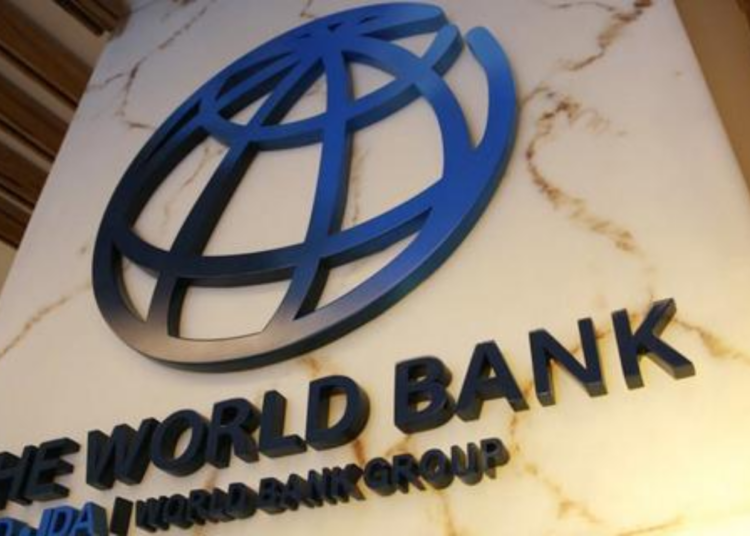Several reports by reputable organisations, both local and international, have indicated that Nigeria faces the serious challenge of poverty for millions of the country’s citizens. A recent report by the World Bank, in its Macro Poverty Outlook for Nigeria: April 2023, projects that about 13 million Nigerians would fall below the national poverty line by 2025 owing to the country’s population growth surpasding efforts to reduce poverty among the countrymen.
We recall that Nigeria’s National Bureau of Statistics (NBS) had, in its 2022 Multidimensional Poverty Index survey, stated that 63 per cent of persons living within Nigeria (133 million people) are multi-dimensionally poor. This implies that 13 million more Nigerians are doomed to be consigned to perjury in addition to those already within this bracket in the next two years.
The World Bank gave reasons for the Nigetian situation: “Macroeconomic stability has weakened considerably due to multiple FX rates, high and increasing inflation, rising fiscal pressures, and declining forex reserves. Nigeria’s fiscal position has deteriorated since 2015 due to declining oil revenues and rising expenditures, resulting in persistently high fiscal deficits. To finance the growing deficit, the government has resorted increasingly to costly financing from the central bank, which in turn has increased interest costs, crowding out private sector credit, and contributing to inflation.”
According to the report, inflation, especially for food items, has been on the rise since 2019, continually eroding the purchasing power of low-income earning Nigerians.Nigeria food insecurity has been aggravated by insecurity in farming communities in the country agrarian belts in the northern Nigeria zones due to activities of killer herdsmen, economic bandits and ideological terrorists. As a result, millions of inhabitants of this region have been displaced from both their ancestral homes and livelihoods and are living in Internally Displaced Persons (IDP) camps where they are living rather economically unproductive lives.
Even in communities where some form of agriculture takes place, many of the farmers are forced to pay protection levies to criminal gangs in order to be allowed to till the land and harvest the yields. All these led to the huge cost of food items in the markets, pushing them beyond the reach of many Nigerians. The World Bank estimated that food inflation in 2022 alone pushed five million Nigerians into poverty.
Also contributing to the problem was low private investment, low and inefficient public spending due to low revenue collection, and low social development outcomes leading to low productivit.
The report pointed out that the oil sector, which hitherto had been the major contributor to fiscal revenues and accounting for about 90 per cent of total exports, has underperformed since 2020 due to declining oil production and the mounting cost of the petrol subsidy which have prevented Nigeria from reaping the benefits of higher global oil prices.
This is in addition to security challenges in the oil-producing Niger Delta region as result of oil theft and, ageing infrastructure and inadequate investments in the sector, all which have cut Nigeria’s earnings from the sector and deteriorated the country’s fiscal position. The result is that Nigeria is in a more fragile position than before the late 2021 global oil price boom.
The Nigerian economy is projected to grow by an average of 2.9 per cent per year between 2023 and 2025, only slightly above the population growth rate of 2.4 per cent, with growth driven by services, trade, and manufacturing while oil production is projected to remain subdued in part because of inefficiencies and insecurity.
As a newspaper, the projection by the World Bank is a wake-up call on the incoming administration to gird its loins and confront this monster of poverty that had built up some momentum during the lifespan of the outgoing administration.
One of the ways governmentcan increase its revenue is to widen the tax belt; a good number of Nigerians and businesses who should pay tax are not doing so at the moment. Rather than contemplate increasing the tax burden on the taxed few, government should bring in more taxable Nigerians and cooperates within the tax belt. This will significantly increase government revenue and boost its poverty intervention measures.
Furthermore, the incoming administrations at the state and national levels must place real value on public expenditure. The wastefulness associated with governance must be seen as one of the enemies of the Nigerian people and confronted frontally to cut the cost of governance to manageable proportions. Government money should be spent on policies that can uplift the living standards of the masses.
The need to end insecurity need no overstating. Without government being in charge of the country’s economic spaces, it cannot harvest the rich resources it needs to solve the country’s existential problems.
Finally, we urge incoming administration to walk the talk of diversifying the economy way from over dependence on oil. Nigeria needs to be earning huge inflows from agricultural value-chain, from solid minerals, from tourism, from sports and entertainment, and other sectors of the economy.
With proper and committed planning and working, we are confident that Nigeria can avert this misery foretold.





